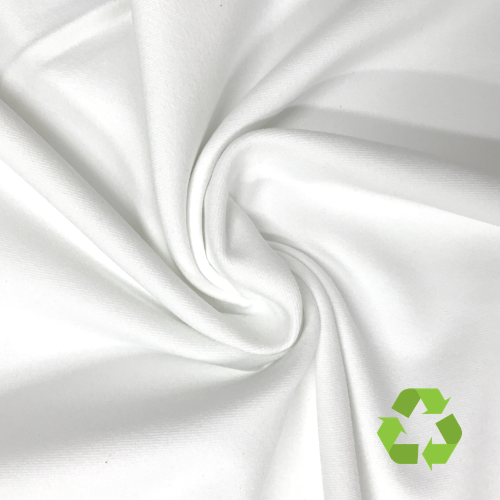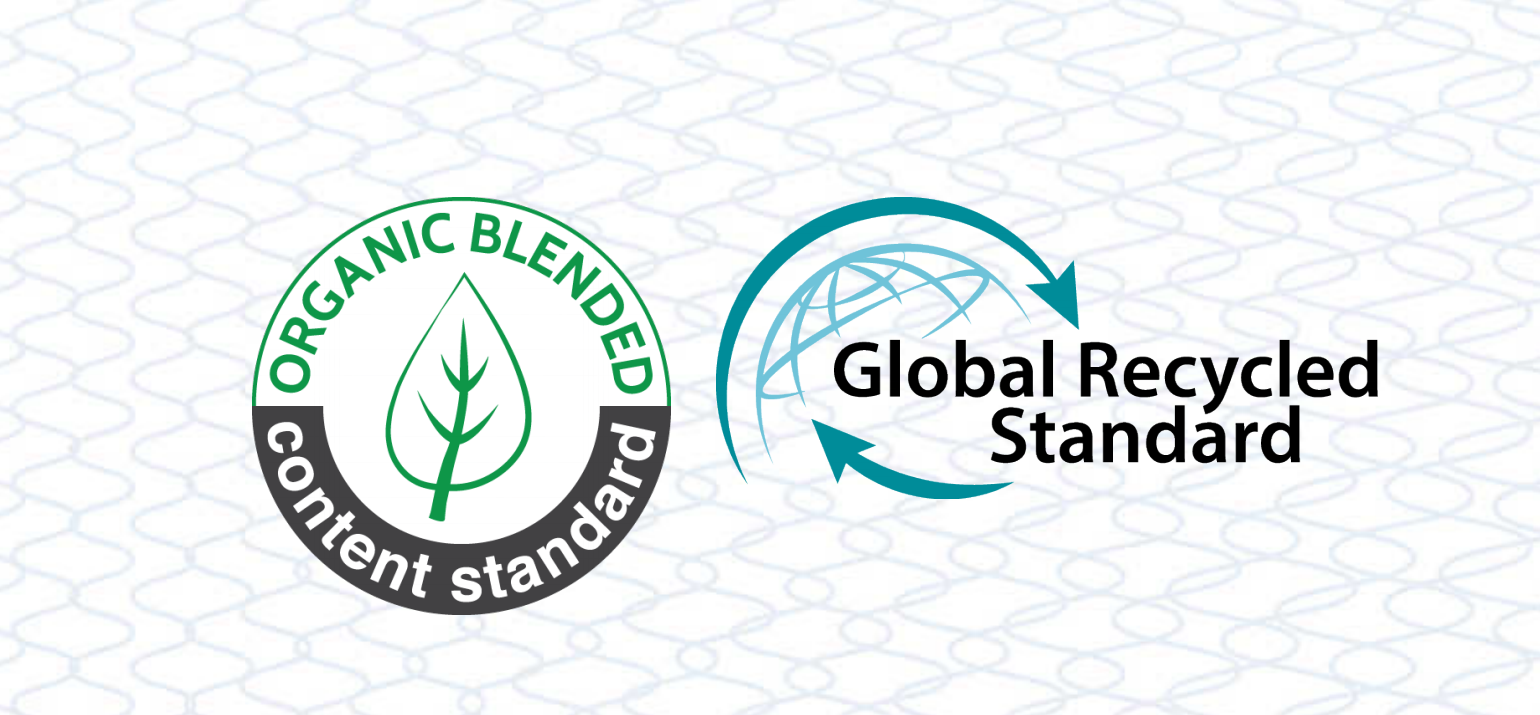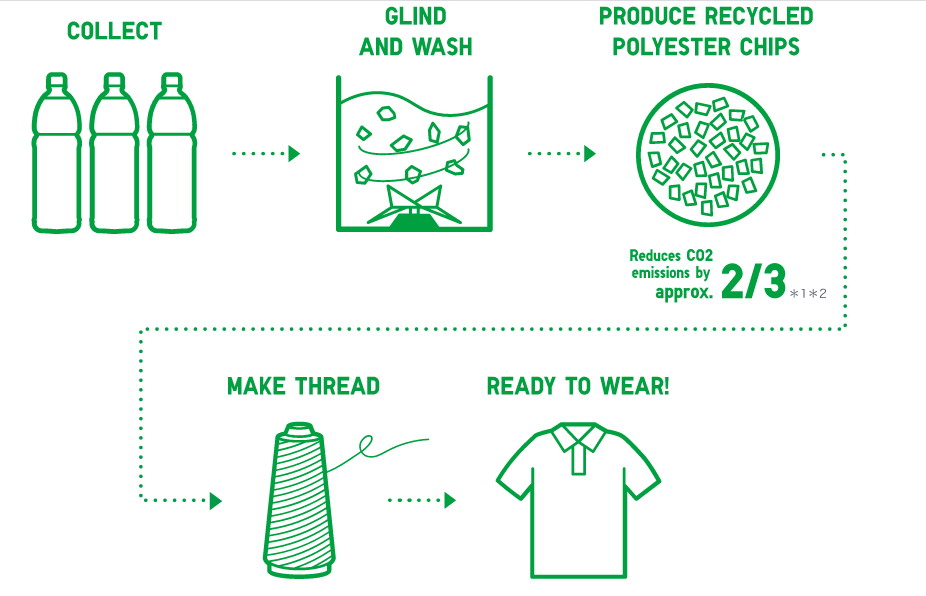In recent years, the textile industry has witnessed a significant shift towards sustainability, with recycled materials taking the spotlight. Among these materials, recycled polyester has emerged as a popular choice for workwear fabric, offering a blend of environmental consciousness and performance. Let’s delve into the intricacies of recycled polyester, comparing it to its traditional counterpart and highlighting its relevance in crafting eco-friendly workwear fabrics.
What is Recycled Polyester?
Recycled polyester, also known as rPET (recycled polyethylene terephthalate), is a sustainable alternative to traditional polyester fabric. It is made by collecting and processing post-consumer plastic bottles or post-industrial polyester waste. These materials are cleaned, shredded, and melted down to form pellets. These pellets are then extruded into fine threads, which are spun into yarn and woven into fabric.

How is it Made?
- Collection and Sorting:
The first step in the production of recycled polyester fabric involves the collection and sorting of post-consumer plastic bottles or post-industrial polyester waste. These materials are sourced from recycling centers, waste management facilities, or textile manufacturers. - Cleaning and Shredding:
Once collected, the plastic bottles or polyester waste undergo a thorough cleaning process to remove any impurities or contaminants. The cleaned materials are then shredded into small flakes or chips, ready for further processing. - Melting and Pelletization:
The shredded flakes or chips are melted down at high temperatures to form a molten polymer. This molten polymer is then extruded through a spinneret to create thin strands. These strands are cooled and solidified, resulting in small pellets known as rPET pellets. - Spinning and Weaving:
The rPET pellets are then fed into a spinning machine, where they are heated and stretched to form continuous filaments. These filaments are twisted together to create yarn, which is then woven into fabric using various weaving techniques.

Polyester vs. Recycled Polyester:
A Comparative Analysis Advantages of Recycled Polyester
- Sustainability: Recycled polyester offers a sustainable alternative to traditional polyester, reducing reliance on virgin resources and minimizing environmental impact.
- Durability and Performance: Despite its eco-friendly credentials, recycled polyester boasts similar properties to its virgin counterpart, including durability, lightweight, and crease-resistance, making it an ideal choice for workwear fabric.
- Resource Conservation: By repurposing plastic bottles, recycled polyester contributes to waste reduction and lowers the demand for petroleum-based raw materials, conserving valuable natural resources.
- Energy and Water Savings: The production of recycled polyester requires significantly less energy and water compared to virgin polyester, leading to substantial energy and water savings and reducing greenhouse gas emissions.
Challenges of Recycled Polyester:
- Quality Assurance: Maintaining consistent quality in recycled polyester fabrics can be a challenge, as variations in raw materials and processing methods may affect the final product’s characteristics.
- Limited Availability: Despite its growing popularity, recycled polyester may still face challenges in terms of availability, especially in regions with less developed recycling infrastructure.
- Cost Considerations: The production of recycled polyester involves additional processing steps, which may result in slightly higher production costs compared to traditional polyester.

Ensuring Sustainability in Fabric Production
At our company, we are committed to sustainability and transparency in our fabric production processes. We proudly utilize recycled polyester in various workwear fabric compositions, including sustainable fabric blends such as:
- Recycled polyester/cotton blends
- Recycled polyester/ organic cotton blends
- Recycled polyester/organic cotton/spandex blends
- Recycled polyester/viscose blends
- Recycled polyester/Tencel™ blends
We hold certifications for our recycled polyester fabrics, ensuring that they meet stringent standards for sustainability and environmental responsibility. Additionally, we provide transaction certifications with every order, guaranteeing that our customers receive fabrics made with certified recycled polyester.

Recycled Polyester in Workwear and Prominent Brands:
Recycled polyester has found extensive applications in the workwear industry due to its durability, versatility, and sustainability. Many renowned workwear brands have embraced this eco-friendly material, incorporating it into their product lines. Some notable examples include:
a) Patagonia: Patagonia, a leading outdoor clothing brand, has been a pioneer in using recycled polyester in their workwear. They have successfully created high-performance jackets, pants, and shirts using recycled polyester fibers.
b) Carhartt: Carhartt, a well-known workwear brand, has also recognized the importance of sustainability. They have introduced a range of workwear made from recycled polyester, ensuring both durability and environmental responsibility.
c) Dickies: Dickies, a trusted name in workwear, has incorporated recycled polyester into their clothing line. Their work shirts, pants, and coveralls made from recycled polyester offer comfort, durability, and a reduced carbon footprint.
Recycled polyester represents a significant step towards sustainable fabric production, offering a viable alternative to traditional polyester with comparable performance and superior environmental credentials. As the textile industry continues to prioritize sustainability, recycled polyester is poised to play a pivotal role in shaping the future of workwear fabric, ensuring both functionality and eco-friendliness.
By choosing fabrics from our company, you not only invest in durable, high-performance workwear but also contribute to a more sustainable and resilient future for generations to come.

